Resilient plants are perfect for beginners, as they’re easy to care for and don’t require much attention. These plants are drought tolerant and can withstand a wide range of conditions.
One of the most resilient plants is succulent. Succulents are perfect for those who forget to water their plants, as they can go weeks without being watered. They’re also low-maintenance and can thrive in both sunny and shady areas.
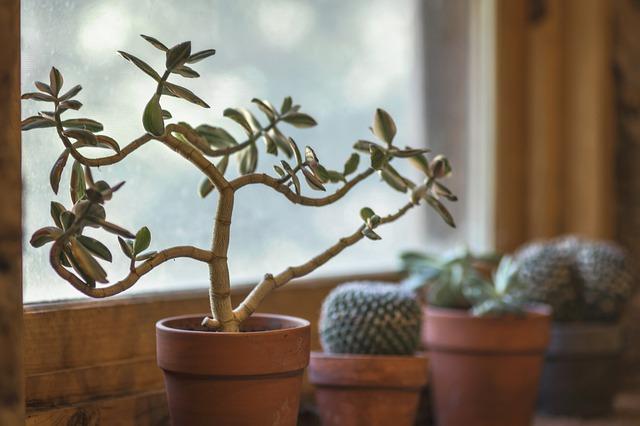
Hence, if you’re looking for some easy-to-care-for plants, check out this guide! These plants are perfect for beginners and will add a splash of color and life to your home.
The Benefits Of Growing Resilient Plants
Growing resilient plants has a lot of benefits.
- Resilient plants are low-maintenance plants and can withstand a lot of neglect. That is, even if you forget to water them or give them enough sunlight, they will still survive.
- They’re also great for purifying the air. They can help remove harmful toxins and pollutants from the air, making your home or office.
- These plants can withstand tough conditions and still thrive. They are often used in landscaping because they can add beauty to a space while also being low-maintenance.
- Resilient plants are also often resistant to pests and diseases. That is, they require less care and are less likely to die than other types of plants.
- They’re a great choice for beginner gardeners, as they are easy to care for and require little attention. They are also a good choice for people who live in areas with harsh conditions, as they can withstand extreme weather.
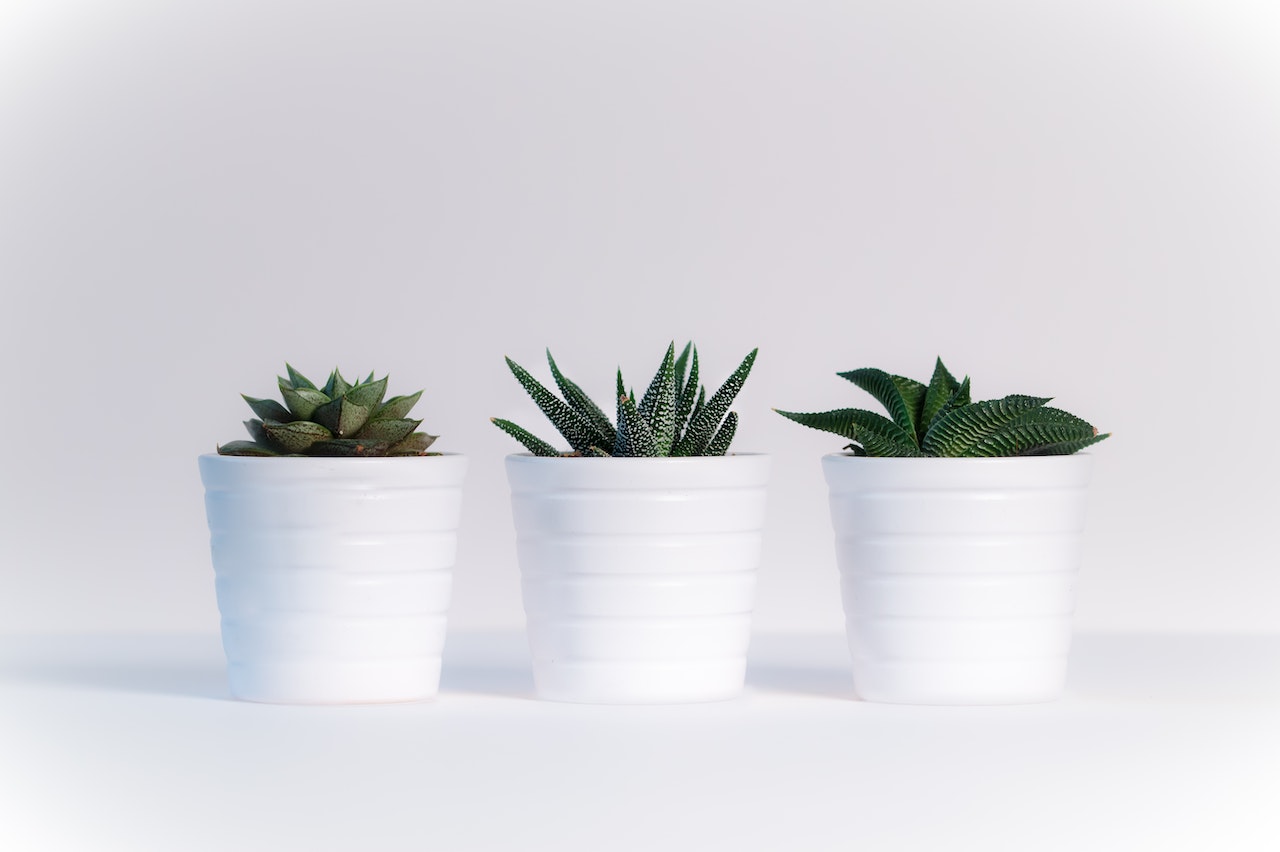
Credit: Pexels
The Best Resilient Plants For Beginners
There are different types of resilient plants, and each type has its own set of benefits. Here are some of the most popular types of resilient plants:
1. Aloe Vera
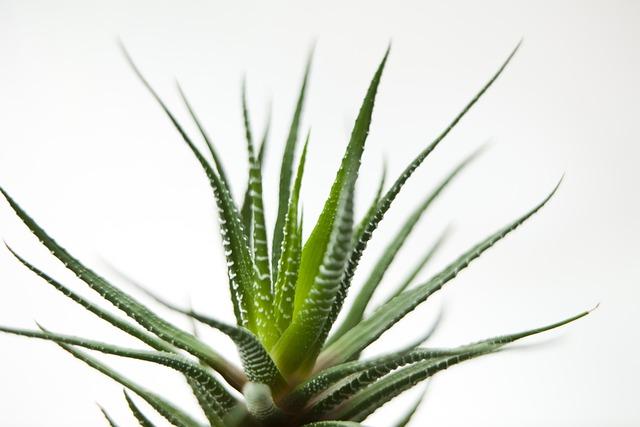
Aloe Vera is a popular resilient succulent that is used for its medicinal purposes. The gel inside the leaves can be used to soothe burns and cuts. It is a hardy plant that can withstand neglect and can tolerate low light conditions.
2. Spider Plant

Spider plants are known for their ability to purify the air. They are also very easy to care for, and they make a great addition to any home.
3. Snake Plant
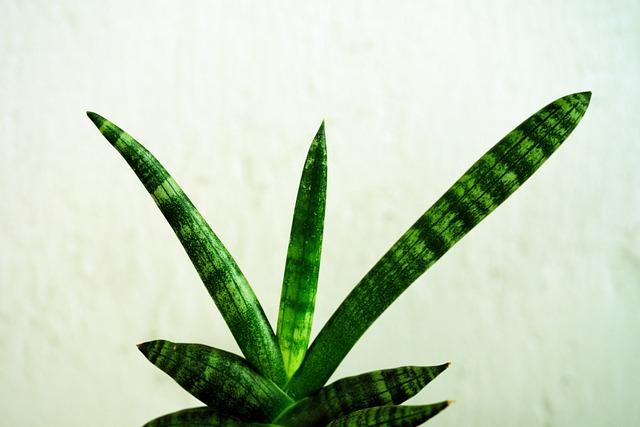
Snake plants are another type of succulent that is very easy to care for. They are known for their ability to tolerate low light conditions and they also help to purify the air.
4. Peace Lily
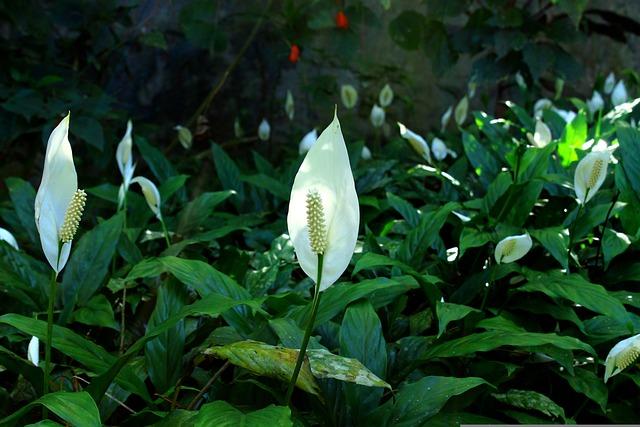
Peace lilies are a type of flower that is known for its ability to thrive in low-light conditions. They are also known for their ability to filter out toxins from the air.
5. Bamboo

Bamboo is a type of grass that is very resilient. It can grow in a variety of conditions, and it is known for its ability to purify the air. Bamboo is also a very popular choice for home decor.
How To Grow Resilient Plants
To grow resilient plants, you’ll need to start with a good-quality potting mix.
- This mix should be well-draining and contain a mix of sand, perlite, and vermiculite. You can find this mix at most garden centers or online.
- Once you have your potting mix, you’ll need to choose the right pot for your plant. Succulents and cacti need a pot that has drainage holes in the bottom. Air plants can grow in any type of pot, but they prefer ones that are open and airy.
- When you’re ready to plant, simply add your plant to the pot and cover the roots with a potting mix. Water your plant thoroughly, and then place it in a bright, sunny spot.
- Most resilient plants don’t require much water, so you only need to water them every week or two. When the soil feels dry to the touch, it’s time to water again.
- As long as you provide your resilient plants with the basics – good potting mix, bright light, and occasional water – they should thrive. With just a little care, you’ll have a collection of healthy, resilient plants in no time.
Tips for taking care of your Resilient Plants
Here are some tips for growing resilient plants:
-
Give them a good start
Resilient plants are tough, but they still need a good foundation to grow. Make sure to plant them in rich, well-drained soil and give them plenty of water when they’re first getting started.
-
Don’t overdo it
Once your resilient plants are established, they don’t need a lot of fussing over. Water them when the soil is dry, and fertilize them once or twice a year. That’s all they need to stay healthy and happy.
-
Choose the right variety
Some plants are more resilient than others, so do your research before you buy. Talk to your local nursery or read online reviews to find the most resilient varieties for your climate and growing conditions.
-
Be patient
Resilient plants take time to establish themselves, so don’t expect them to look perfect from the start. Give them a few months to a year to really get settled in, and then they should start to thrive.
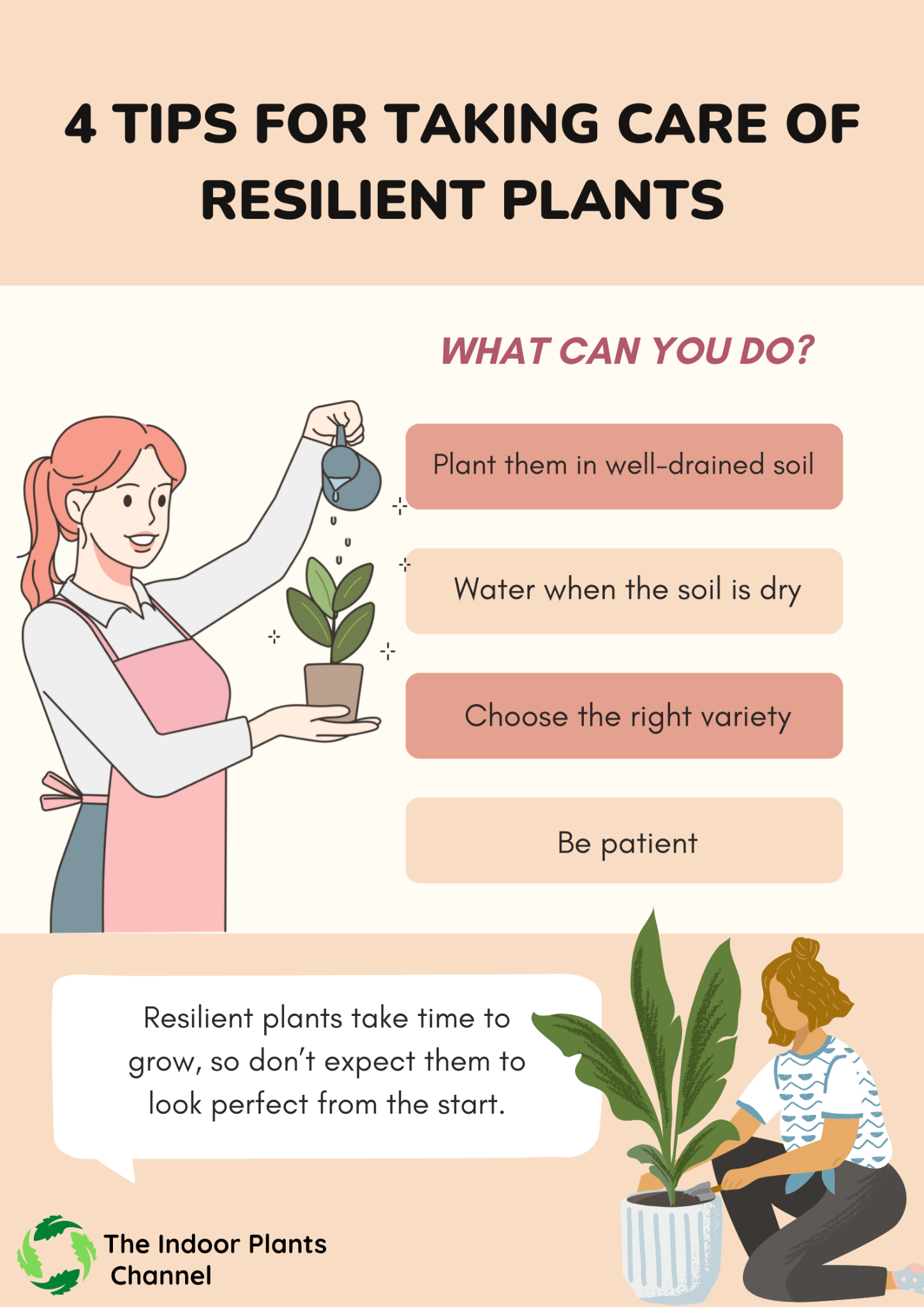
Bonus Tips
- Water your plant regularly, making sure to not over or underwater it.
- Fertilize your plant every few weeks to help it grow strong and healthy.
- Prune your plant as needed to keep it looking its best.
Frequently Asked Questions
- What are some good resilient plants for beginners?
Some good resilient plants for beginners include impatiens, petunias, and marigolds. These plants can tolerate a little neglect and still thrive.
- What does it mean that a plant is described as “resilient?”
If a plant is described as resilient, it means that it is able to withstand or recover quickly from difficult conditions.
- Why are resilient plants good for beginners?
Resilient plants are good for beginners because they are easier to care for. They can tolerate a little neglect and still thrive.
- What are some common problems that can occur with resilient plants?
Some common problems that can occur with resilient plants include root rot, leaf spot, and powdery mildew. These problems can be easily controlled with proper care.
- How can I know my plant is resilient?
If you are not sure if your plant is resilient, you can always ask your local nursery or gardening center. They will be able to help you choose the right plant for your needs.
Conclusion
If you’re looking for some low-maintenance houseplants to add to your home, look no further than this guide! These resilient plants are perfect for beginners, as they’re easy to care for and can thrive in a variety of conditions.
So whether you’re a plant parent-in-training or an experienced green thumb, these resilient plants are sure to suit you perfectly.
Michelle Wilde
Related posts
4 Comments
Leave a Reply Cancel reply
![]()
About Michelle Wilde
Michelle Wilde is a stay-at-home mom and avid plant lover. Armed with a post-graduate degree in Computer Science (no kidding!), she loves researching plants and landscapes. When she is not caring for her 4 kids, she spends time on her passion for plants. She blogs at www.indoorplantschannel.com, the trusted source for indoor plants.
Learn more
Subscribe
* You will receive the latest posts and updates about indoor plants!
Search
Recent Posts
Categories
- Beginner Guides (10)
- FAQ (206)
- General (2)
- How-To Guides (212)
- Indoor Plants (214)
- Pest Management (2)
- Plant Problem Solutions (4)
- Seasonal Growing (2)
- Specialized Environments (2)
- Specific Plant Care (3)
- Technical Growing (2)
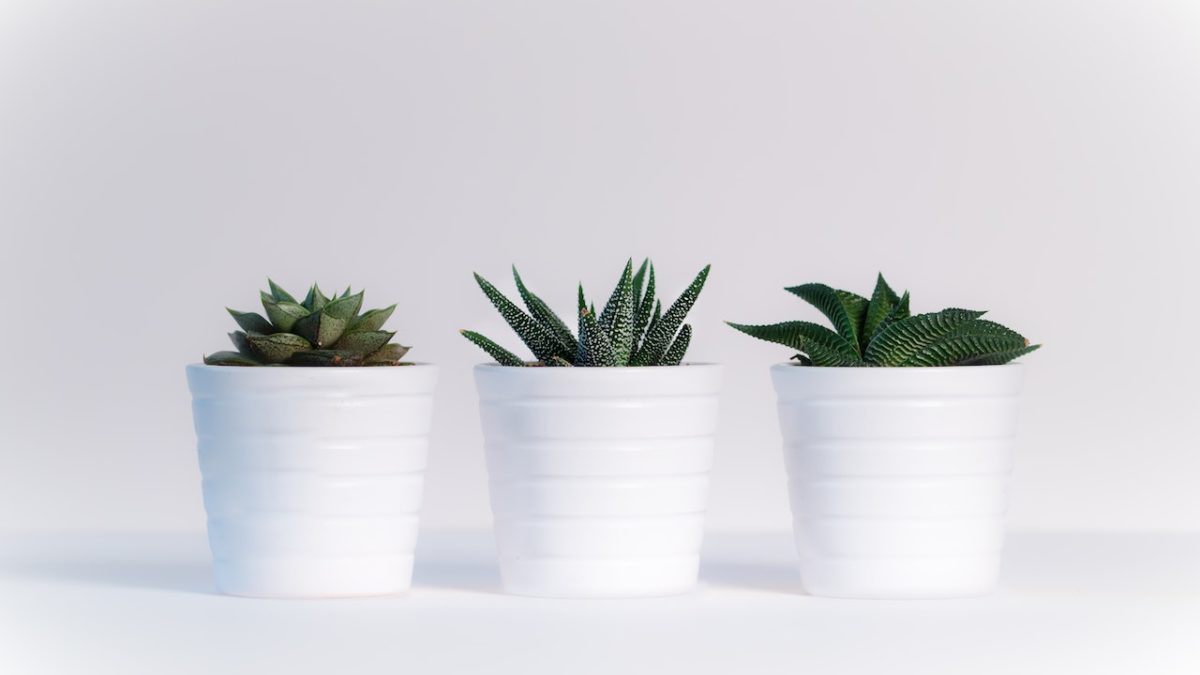
[…] Resilient houseplants are plants that can withstand neglect and still thrive. These plants are perfect for busy people or those who don’t have a lot of experience with plants. […]
[…] which ones will thrive in your home. To help you out, we’ve compiled a list of the top 5 most resilient houseplants, as chosen by the […]
[…] Resilient plants are those that can withstand harsh conditions and still thrive. This includes things like extreme temperatures, drought, and flooding. […]
[…] out the history, benefits, and other types of resilient houseplants […]